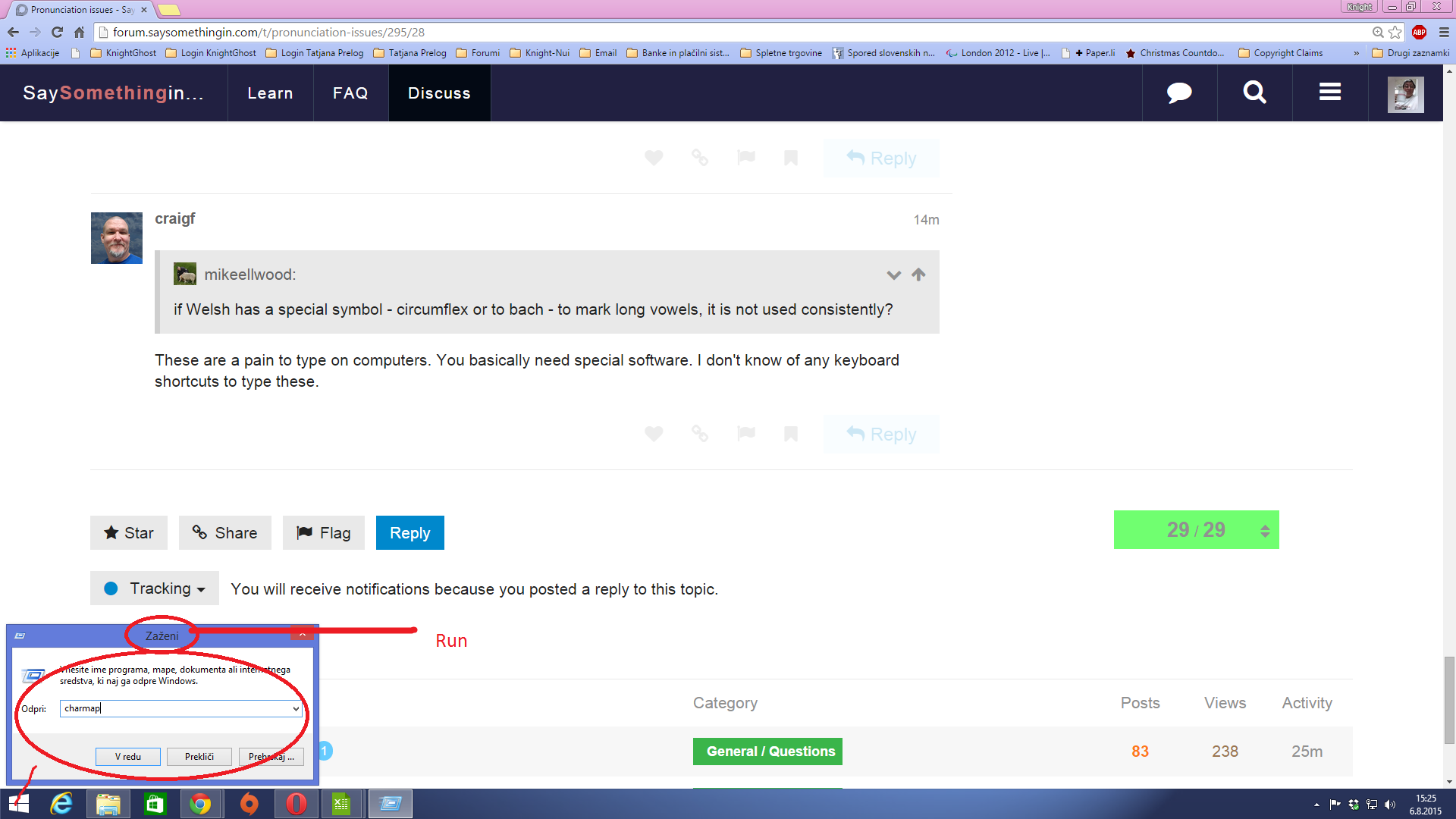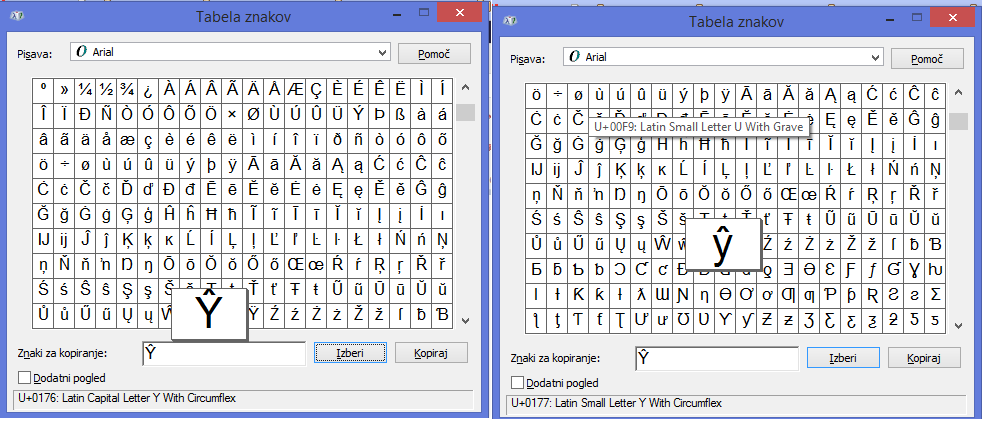Oh, I see. Yes, “ll” seems to be a bit easier, though I don’t associate it with the “l” sound at all, it sound to me as if I’m pronouncing some variety of “sh”
So that you will laugh a bit upon my stupidity … when I first saw this sound in Cymraig alphabet I thought I’m reading the pronunciation description right and carelessly said "Ah, this easy. It should be something like Spanish “ll” (familiar sound lj for us - Slavic speakers) but when i really heard it @Iestyn saying it in the course I felt really fairly stupid upon my careless “it’s easy” attitude …
Yah, the story of the beginning when I didn’t know for SSi yet. ![]()
Well, it’s a really unexpected sound, “ll”! I’m still tempted to read it just a a long “l” everytime I meet it. Which I did at first, becacuse I just couldn’t master the right sound. But I received a kind warning on a Russian forum: a person said that native speakers don’t regard very highly the people who mutilate their lovely language by pronouncing it deliberately incorrectly. So I put some more effort into it and I think “ll” is not such a problem for me anymore…
To begin with ‘hen’, could it be because printing lines over letters is difficult?
Now, mh nh and ngh, try pausing briefly before the ‘h’ , sort of : “fyn-had” then try again faster. I wanted to call my cottage “Gartre’nghalon” (pronouced gartreng-halon).. I didn’t because it would have been out of place in an English speaking village. I feel very lucky that pronouncing Cymraeg comes pretty naturally and sympathise with you both!! Slovenian looks impossible to me!!! And I’ve forgotten the cyrillic alphabet already!!
![]()
I find this kind of lovely …
It’s not so impossible, believe me.
Thank you. This should help I believe. ![]() Will try in a lesson on Monday when I start by @aran’s instructions again … oh, oh … Lesson 24 and 25 two days in a row …
Will try in a lesson on Monday when I start by @aran’s instructions again … oh, oh … Lesson 24 and 25 two days in a row … ![]()
Thank you, the instructions in the books can be confusing, for example pronouncing mh like an m but in a whisper…
Well actually, those are nasal sounds, so close your nose and then try to say them. 
Oh thanks! Finally I can hear that I’m pronouncing something different than the ordinary m and n.
These are a pain to type on computers. You basically need special software. I don’t know of any keyboard shortcuts to type these.
What about this?

It works in Windows 8 too (I’ve just tested to open). This map might include all the characters. You can either copy/paset or see the shortcut when clicking on particular character.
Well the “to bach” utility is one way. I agree that typing the circumflex is generally a bit of a pain, but as it already exists in the language for some words, I just wonder why they are not used consistently (and even the textbooks admit this).
One can get the free “to bach” programme via this link:
which in turn links here:
http://www.interceptorsolutions.com/products/tobach
I had tried this unsuccessfully on my old XP system and gave up on it. But having moved to W7, I recently gave it another try and it worked perfectly.
Exactly, my point. Most people won’t bother with that kind of hassle. ŵ and ŷ do not have keyboard shortcuts.
Well when you think about it, English has a lot of inconsistency too. Some of it has to do with pronunciation changing over time and spelling not keeping up.
Um, well, I give up on this too. I went through the whole charmap and yes, those two “y” have shortcut, but it’s rather complex to type

but “v” for that matter is not in the charmap at all. So, I should probably try @mikeellwood’s links aswell.
Anybody knows about good spellchecker which would be maybe compatible with Polaris Office? (I don’t own Microsoft Office and I actually found Polaris Office great substitution which can be synced for android devices too so you have your documents always at hand and can write, save and whatsoever on other devices then just PC aswell.)
True of course. English is beyond hope as far as spelling reform is concerned.
But Welsh is relatively more phonetic than English. So all I am asking is that all long vowels are marked with circumflex, and not just some of them. This would be a help to learners.
However…
That’s a good point of course. And regional variations are another complication.
“Charmap” is useful in some cases, but not really practical if you have to write a lot of words containing these special characters. As far as Welsh is concerned, the “to bach” programme, if it will install and run ok on a system you have access to, really takes the hassle out of ŷ,Ŷ,ŵ, Ŵ, and the rest of them. Failing that, http://welsh.typeit.org or something similar can be helpful.
See also this thread: Welsh Characters with UK Keyboard - General / Questions - SSi Forum
(I couldn’t actually get Hector’s method to work on my W7 system - probably needs another Windows component installing in the case of my particular computer).
Eh, @mikeellwood keep with W7 as long as you can and they can suit you. W8 (I’ve just got it yesterday with my new PC) causes tons of problems. I’ll try to instal “to bach” to see if it works on this “problematic” software. Hopefully it does. Thank you very much. 
I’d forgotten that. I tend to think ‘aspirant’ at the sight of an ‘h’!! I hope I haven’t misled anyone, but I always sound my ‘h’s’!! Maybe we shoild ask @aran ? I know @Iestyn rarely sounds an ‘h’ but that’s his local accent!!
Two separate replies in one post to @MickDavies:
Don’t worry about the difference between v and th - you can;t hear them clearly because they are pretty similar. If you use the wrong one in conversation, there is every chance that the person you’re talking to will “mishear” the correct sound anyway! You certainly won’t be misunderstood any more than you would misunderstand someone saying “I fink vat (think that) as well”.
On the forum “similar subject” issue - you can over-ride it. One of the buttons says something like “post anyway”. Sometimes that will be a better option, and sometimes you’ll be better to rejuvenate an old thread like this.
And the other points…
The absence of the to bach accent on most long vowel sounds is something that just is, I’m afraid. I’m quite thankful for that as well - it would be a nightmare having to put a to bach on every long vowel, especially as South Eastern speakers tend to elongate more vowels than the rest of the Welsh do.
On to the pronunciation of mh, nh etc: The problem with these is that they are an approximate rendition of the sound that speakers make. think carefully of the difference between p and b - you spit the p more than you do the b, sort of blowing through the letter to give the (ex)plosive quality of the sound. The h of Mh gives the same plosive quality to the m
Mh is not really a separate letter to p, but a sort of extension of the same letter, said differently. Try saying a p but allowing the air to escape down your nose at the same time.
Alternatively, just say m and n, like I do! (There’s no h in South Wales. Oh, poo, yes there is…)
Thanks. I will continue to persevere. Blame my mum for it bugging me, she is an English teacher and I had things like that drummed into me. haha